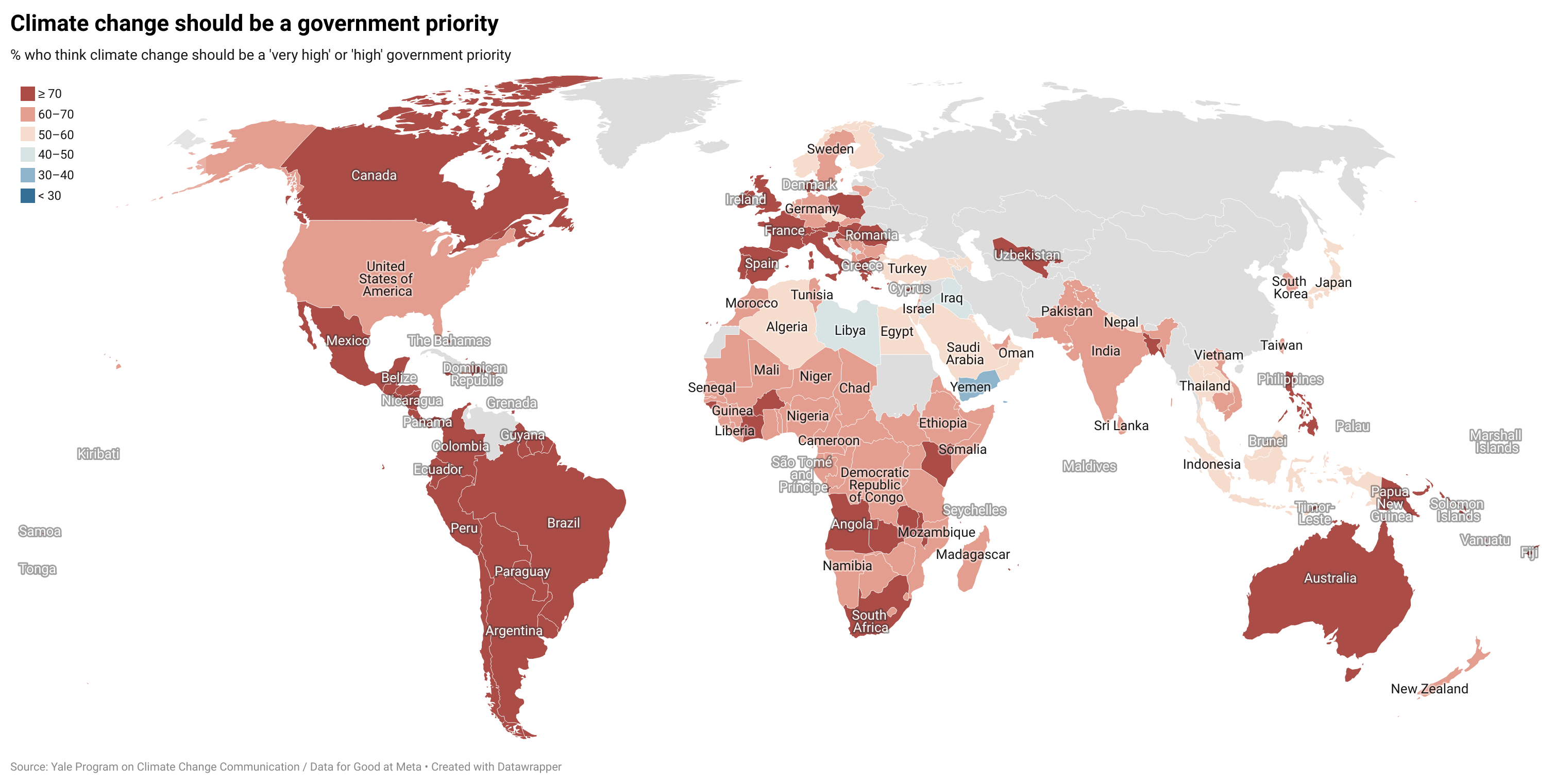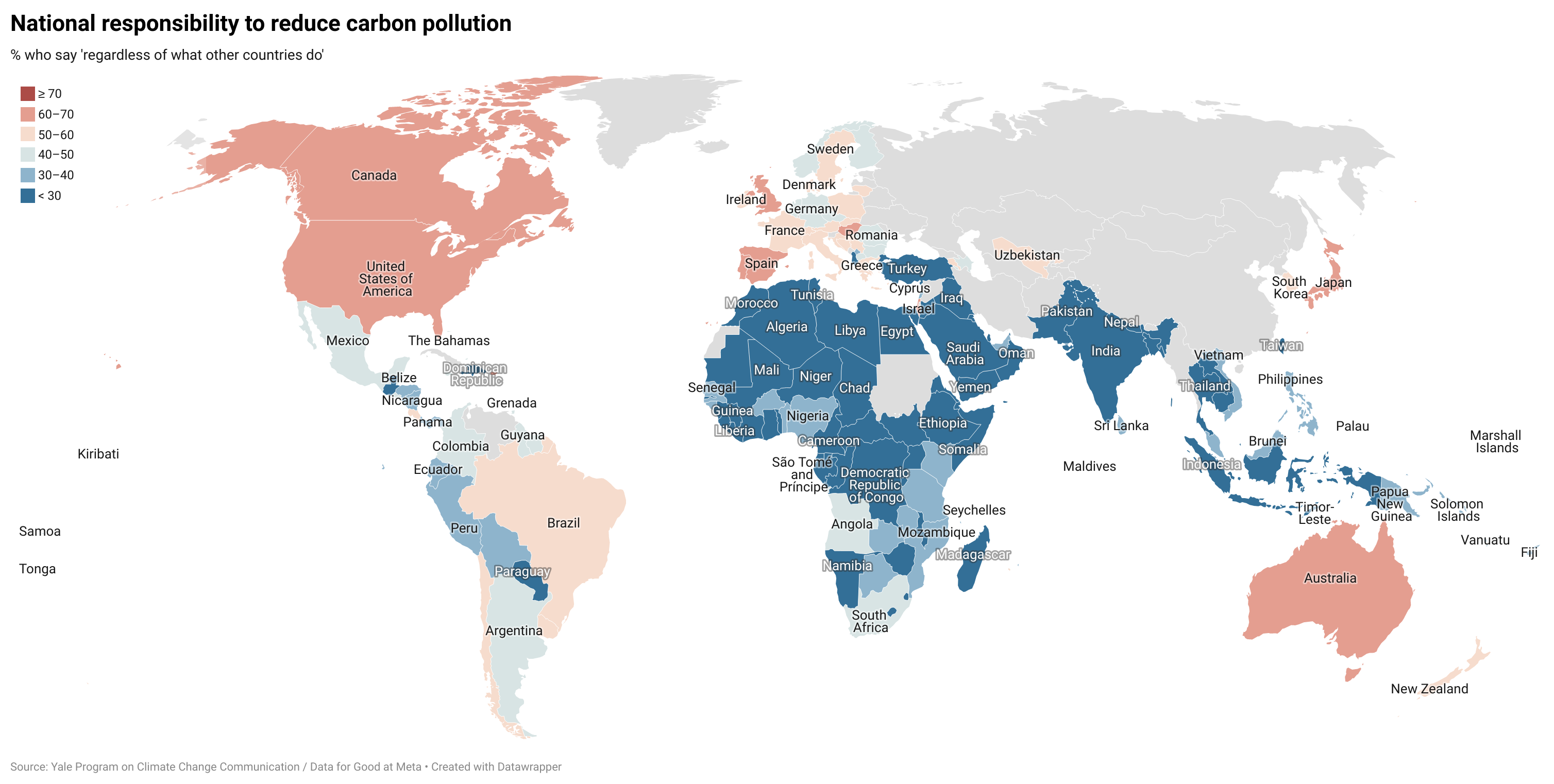Report · Jun 29, 2022
International Public Opinion on Climate Change, 2022
By Anthony Leiserowitz, Jennifer Carman, Nicole Buttermore, Liz Neyens, Seth Rosenthal, Jennifer Marlon, J.W. Schneider and Kelsey Mulcahy
Filed under: Audiences, Beliefs & Attitudes, Behaviors & Actions, Policy & Politics and Climate Impacts
3. Responsibility for Action on Climate Change
3.1 Respondents in many areas think their governments are most responsible for reducing the pollution that causes climate change.
In 42 surveyed areasRespondents in Vietnam were not asked this question., respondents are more likely to think that the government is most responsible for reducing the pollution that causes climate change, including half of respondents in Romania, Uzbekistan, and Lebanon (all 50%). In 42 other areas, respondents are more likely to think that individual people are most responsible for reducing the pollution that causes climate change, including a majority of respondents in El Salvador (52%) and near-majorities in Zambia and Panama (both 49%). In the remaining 25 areas, respondents are more likely to think that businesses are most responsible for reducing the pollution that causes climate change, led by Germany and Mexico (both 43%).
Complete responses for this question by area and region are presented in Appendix II, starting on p. 79.
3.2 Respondents in most areas say climate change should be a high priority for their government.
A majority of respondents in most surveyed areas (104 out of 110) say climate change should be a “very high” or “high” priority for their own governments, led by Chile (91%), Mexico (88%), and Puerto Rico (88%). Respondents are least likely to say so in Yemen (36%) and Kosovo (47%).
Majorities of respondents say that climate change should be a “very high” or “high” priority for their governments in most areas within every region (see Appendix II). Moreover, majorities of respondents in most areas in North America (8 out of 12) and South America (5 out of 9) say that climate change should be a “very high” priority for their governments.
3.3 Most respondents think their country or territory should reduce its pollution that causes climate change.
Majorities of respondents in all 110 surveyed areas think their country or territory should reduce their pollution that causes climate change, either on their own, or if other countries do so.
Among those, majorities of respondents in 30 of the 110 areas surveyed think their country or territory should reduce its pollution that causes climate change regardless of what other countries do (see map). Respondents in Australia (65%) and Portugal (65%) are the most likely to think so, while respondents in Bangladesh (14%) and Cambodia (15%) are the least likely.
Comparing results by region (see Appendix II), respondents in Europe are the most likely to say that their country should reduce its pollution that causes climate change, regardless of what other countries do (17 out of 31 areas). Respondents in Sub-Saharan Africa are the least likely to say so (zero areas). However, majorities in 10 areas in Sub-Saharan Africa say their country or territory should reduce the pollution that causes climate change, if the countries that produce the most pollution do so as well.

